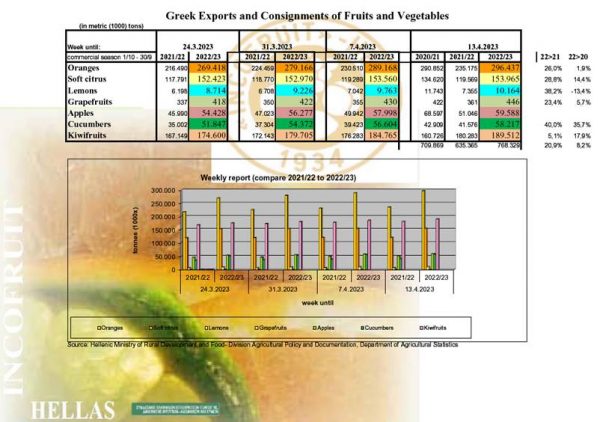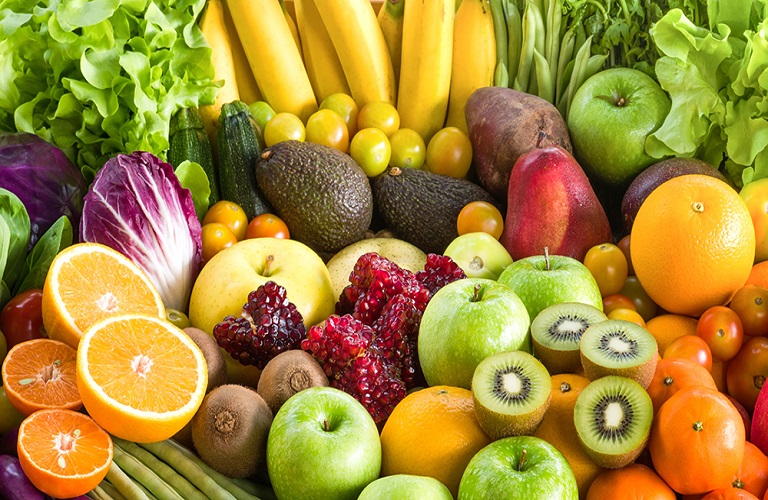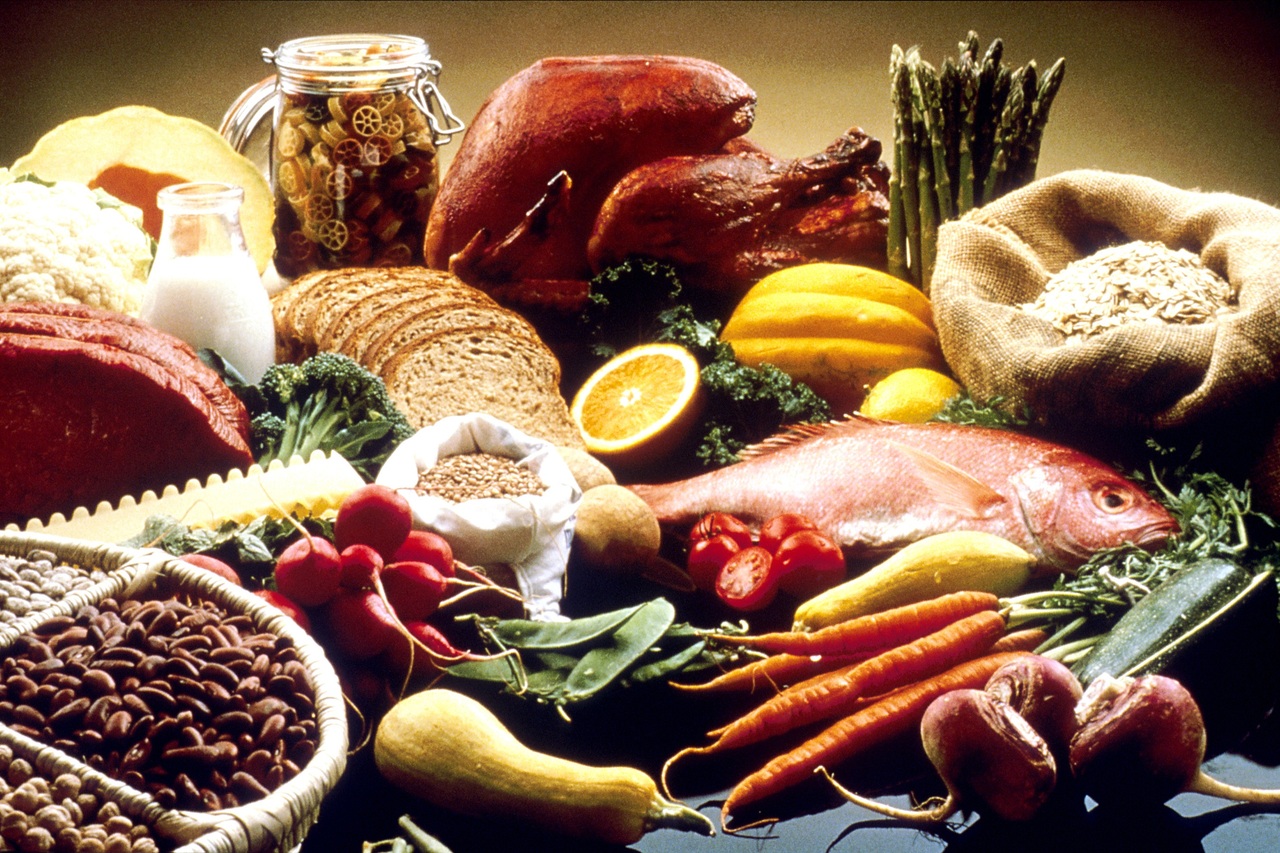Greek fruit and vegetable exports to foreign markets continue at a record pace, with higher percentages recorded in cucumbers and tomatoes, strawberries, oranges and tangerines, as well as kiwis.
In particular, according to the data processed by the Association of Greek Fruit, Vegetable and Juice Exporters – Incofruit Hellas, strawberry exports from the beginning of the year to April 12, 2023 increased by 27.7%, reaching 44,411 tons against 34,787 tons the corresponding period of 2022.
Tomato exports increased by 52.4%, which from 1/1 to 12/4/2023 amounted to 19,938 tons compared to 12,725 tons last year.

Cucumber exports reached 58,217 tons compared to 41,575 tons in the 2021/22 season, recording a 40% increase.
Also, from September 1, 2022 to April 12, 2023, the export of oranges reached 296,437 tons (increased by 26%) and mandarins to 153,965 tons (increased by 28.8%) compared to the previous season.
Apple exports continue at a low rate and from 1/9/22-13/4/23 their export amounts to 59,588 tons compared to 51,046 tons in the corresponding period last year.
From 1/9/2022 to 13/4/23 the cargo announcements registered in MENO for the export-handling of kiwifruit, concerned 189,512 tons compared to 180,283 tons in the corresponding period last year.

New UK border controls

The UK Government, in collaboration with the Scottish and Welsh Governments, has published its plan to strengthen borders against biosecurity threats and illegal imports.
The proposed Target Business Model protects Great Britain’s borders against such threats while making it as easy as possible to do business. To reduce the burden on businesses, the new proposed global risk-based model will use data and technology to simplify and streamline import trade processes.
Central to this proposed model is the new Trading Single Window, which will be delivered from 2023 and fully operational by 2027. This technology will streamline processes for traders, who will only have to submit information once and in one place.
The draft Target Business Model proposes to implement controls through three key milestones:
31 October 2023 – Introduction of health certification on imports of medium-risk animal products, plants, plant products and high-risk food (and feed) of non-animal origin from the EU.
31 January 2024 – Introduction of documents and risk-based identity checks and physical checks on medium-risk animal products, plants, plant products and high-risk food (and feed) of non-animal origin from the EU. At this point, imports of sanitary and phytosanitary healthcare providers from the rest of the world will begin to benefit from the new risk-based model.
31 October 2024 – Safety and security declarations for EU imports will come into force from 31 October 2024. At the same time, it introduces a reduced data set for imports and the use of the UK’s Single Trade Window will remove overlap where it is possible in different data sets before arrival.
The special advisor of the Incofruit Hellas Association, Mr. Giorgos Polychronakis, draws attention to exporters who export fruit and vegetables to the United Kingdom, pointing out that they must prepare to deal with the new bureaucracy as well as with the relevant agencies, mainly the Ministry of Internal Affairs and Communications, so that in time adapt “to the requirements for posting of electronic phytosanitary certificates for fruit and vegetables exported to the UK”.

![ΟΤ Forum – Εξάρχου [AKTOR]: Μεγάλο ενδιαφέρον από ξένους που θέλουν να επενδύσουν στην Ελλάδα](https://www.ot.gr/wp-content/uploads/2025/05/ot_Exarchou.png)








































